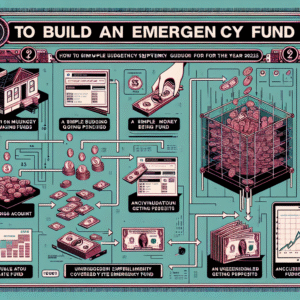The 5 Essential Components of an Effective Business Plan

Why a Business Plan is Indispensable
A business plan serves as a compass to navigate your business idea from the conceptual stage to a tangible and profitable reality. Essentially, it should be considered as a roadmap that not only defines the business’s direction but also outlines the measures, figures, and strategies you need to achieve your business goals. But, what makes an effective business plan? Let’s dive into the five quintessential components of an effective business plan.
1. Executive Summary
The executive summary acts as an abstract of your business plan, presenting an overview of your business idea and the key components that will be explained in further detail in the document. Despite being at the beginning, this crucial section is often written last, ensuring it encapsulates all pivotal points. The summary should be succinct, yet compelling enough to attract potential investors and partners.
2. Business Description
The business description goes one step further in explicating your business vision, providing rich details about your product or service, business structure, and the industry. Here, explain your business’s unique value proposition and how it sets you apart from competitors. Providing a snapshot of your industry’s current trends and future prospects can create a more robust context for your plan.
3. Market Analysis
The market analysis demonstrates your comprehension of your business environment. It should depict your knowledge of your target market, customers, competitors, and general market conditions. Include detailed information about your target audience, their need for your product or service, their demographic and behavioral traits. A thorough competitor analysis will help identify market gaps and opportunities.
4. Organization and Management
A clear view of your business’s organizational structure is vital for defining roles and responsibilities. This part of your business plan should include an organization chart displaying your management hierarchy. Include details about your team’s background and the functions they’ll perform. If you’re planning on expansion, relay how this structure will evolve to accommodate growth.
5. Sales Strategies and Financial Projections
Last but certainly not least, your business plan should contain explicit information about your sales and marketing strategies. Describe how you plan to reach your target market and persuade them to buy what you’re offering. A business plan without thoughtful financial projections is incomplete. Display expected revenue, profitability projections, and financial considerations that are critical for decision-making.
In Summary:
An effective business plan brings cohesion to your business idea, validates its viability, aids in acquiring funds, and acts as a resource for business planning and decision-making. Your plan should be clear, concise, compelling, and complete, encompassing the core components of an executive summary, business description, market analysis, organization and management, and financial projections. With these essential elements, your roadmap to success will be robust, realistic, and ready for execution.
* The post is written by AI and may contain inaccuracies.




